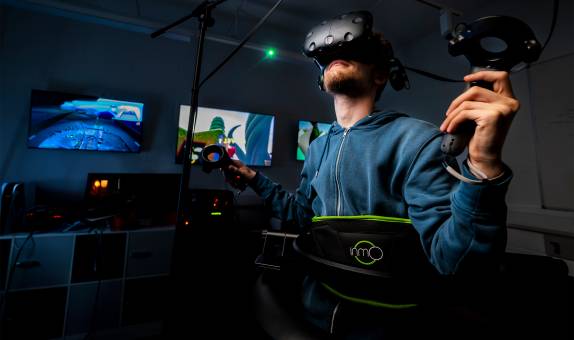Town House Strategy
The future of education
Our world is becoming more interconnected through advances in technology. Society is changing at pace and employers need graduates who bring innovation, enterprise and digital and creative problem-solving skills into the workplace.
Through our Town House Strategy, Kingston University will meet these challenges by delivering a progressive new model of education. We will partner with businesses and other external bodies to support innovation and advance knowledge. Collaboration and innovation will underpin everything we do.
We will enable our students to develop the future skills and personal attributes to thrive in their careers and focus our research, knowledge exchange, and professional practice where it can have impact and drive innovation.
Our vision
Our vision is for Kingston University to be sought after by students and staff as a place to further their ambitions and to have impact on our communities. Our students and staff will be sought after for their skills, knowledge and ability to innovate.
Our mission
Our mission is to enhance students' life chances, support staff ambitions and strengthen Kingston University's impact on industry, policy and the professions to enable a sustainable future socially, economically and environmentally.
Our values
We strive to be:
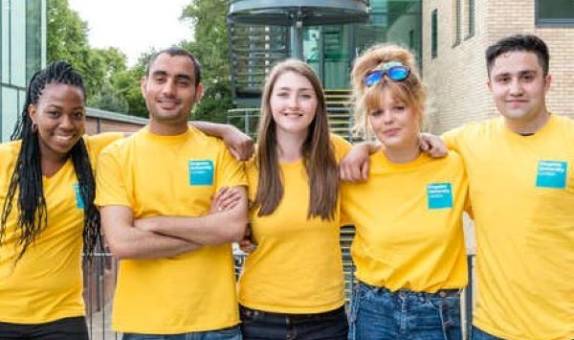
Inclusive
To value the diversity of students and staff, treating all our community with respect.

Innovative
To apply new methods or ideas to drive progress.
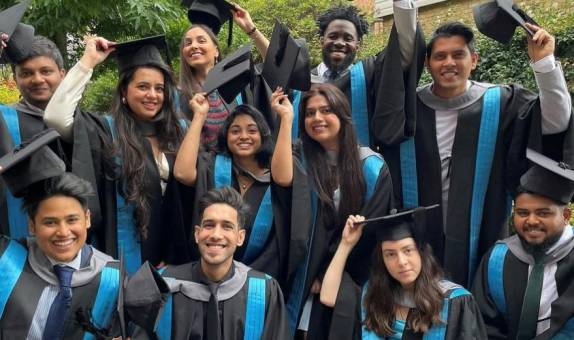
Ambitious
To pursue excellence for individuals, the University and our communities.
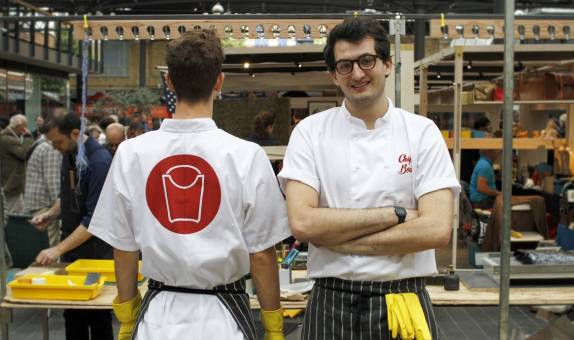
Enterprising
To recognise and act on opportunities.
Staff and graduates celebrate Kingston University's values
Our values serve as guiding principles that define the University's character. They also reflect the institution's unique identity, mission and vision. We are proud to be inclusive, innovative, ambitious and enterprising.
Watch the video to learn more about what our values mean to our staff and recent graduates and how they apply them in their careers and studies.
Town House Strategy sets new direction
Our new strategy will transform our students' education by embedding the future skills sought by business and the professions across our curriculum. It will also give greater prominence, visibility and support to research and knowledge exchange. Equally importantly, it will help create a culture of high performance that is inclusive, innovative, ambitious and enterprising.
"The strategy will ensure our graduates, our staff and the University itself are sought after. Students will seek to broaden their knowledge and skills at Kingston University because it will help them make the most of their higher education; staff will choose to work at the University because they can be effective, innovative and develop their careers; and businesses, organisations and government bodies will seek to partner with us because of our approach, expertise and values."
Vice-Chancellor, Professor Steven Spier

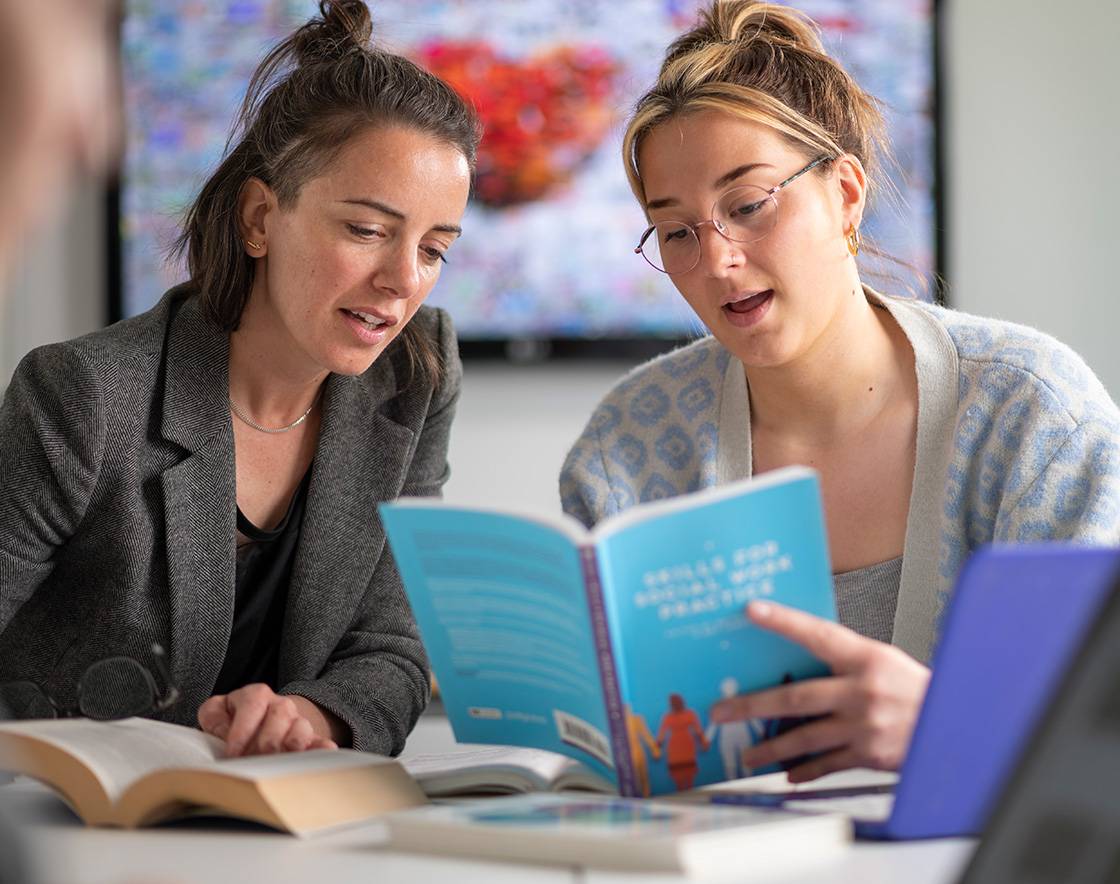
Our goals
- Education: Future Skills and Academic Portfolio – Drive a progressive new model of education, combining subject-specific knowledge with personal learning pathways for students to develop future skills and the attributes most needed by employers.
- Industry and Policy Engagement – Partner with industry to develop our students' skills and engage government bodies and organisations with our ideas and expertise in future skills to further debate and influence policy.
- Research and Knowledge Exchange – Have impact in research, knowledge exchange and professional practice.
- People – Provide a collaborative, innovative, and high-performing working environment for our staff.
Future Skills
During the past three years, Kingston University has been leading the way in a major campaign highlighting the importance of skills for innovation and the vital role they play in driving a thriving national economy. Surveys conducted with support from YouGov demonstrate that key attributes such as problem-solving, critical thinking, communication, adaptability and creativity remain among the core skills most valued by employers.
Read the findings of our latest report, Future Skills: The Kingston Approach (PDF), which was launched at the House of Commons in December 2023. It surveyed more than 2,000 business and industry leaders, 1,000 current full-time students and 2,000 members of the wider public. Find out more in the report about how our research has confirmed the economic imperative of embedding Future Skills, not only across our own curriculum, but also across the wider higher education sector.
Influencing government policy
Vice-Chancellor Professor Steven Spier set out the need for a progressive new model of education focused on delivering the skills for innovation required by industry during a House of Lords Communications and Digital select committee hearing.
Professor Spier shared key findings from the University's Future Skills campaign as part of the Committee's inquiry into the UK's creative future, as well as recommendations for how business and education policy could better support the delivery of these skills.
Embedding Future Skills across curriculum
Our sector-leading Future Skills programme is being rolled out across all courses in all subject areas for every student at Kingston University. This will ensure they develop the knowledge, experience and innovative thinking to thrive in their careers when they graduate.
The programme is divided into three stages – getting under way with Navigate modules in the first year, Explore in the second and Apply in the third – so students have plenty of opportunity to grow and develop their skills throughout the course of their degrees.
Last September, Navigate modules were embedded in all first year undergraduate courses, and this September will see Explore modules embedded for all second-year undergraduate students. Find out more about the roll out of Future Skills across the curriculum.






